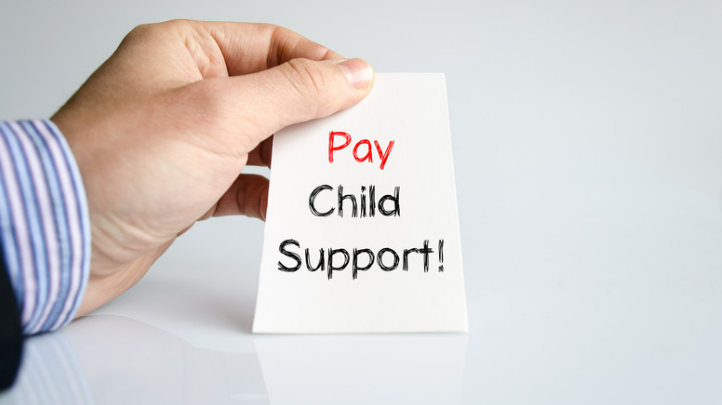Table of Contents
If you do not have a source of income and cannot afford child support, you must still pay it every month. If a parent does not have a source of income, the court may compute income based on the parent’s past work history and projected earning ability.
For example, if a parent is jobless or underemployed, the court may use their past career history to assess how much they may earn again in the future. Essentially, your child support obligation will determine your capacity and availability to locate comparable employment, whether inside or outside your chosen industry.
How Does Child Support Work If The Mother Has No Job?
Why Is Child Support Higher If The Mother Is Unemployed?
 When determining how child support works if the mother does not work, you will soon realize that child support is frequently more remarkable for a single parent who does not have an appointment. Some people may be unable to work.
When determining how child support works if the mother does not work, you will soon realize that child support is frequently more remarkable for a single parent who does not have an appointment. Some people may be unable to work.
Thus, single moms and dads get additional financial aid. If a parent is unable to work, they may be able to earn money in other ways. We’ve discussed various business opportunities for stay-at-home moms.
Is Child Support Paid While Unemployed?
How does child support work if one parent does not work and hence needs financial assistance? Child support is not paid straight from unemployment benefits.
It is not a kind of unemployment compensation. There are times when we all need to conserve money on a limited budget, but the point is that child support exists to guarantee that a kid does not suffer as a result of their parent’s financial situation.
Child support will include overall income rather than simply employment income in most circumstances. Thus, additional advantages or financial success reasons may consider.
If someone making money from another source, it should be disclosed and considered for determining child support.
Can A Person Be Forced To Pay Child Support If The Mother Does Not Work?
 Either parent may be required to pay child support. If the kid is in the other parent’s care, they may pay for the living expenses.
Either parent may be required to pay child support. If the kid is in the other parent’s care, they may pay for the living expenses.
If you have a job, this is not an optional payment. Whether or whether a parent works, she is usually accountable for paying child support.
The only factor a court could assess is a mother’s ability to work. For example, if someone is declared handicapped and unable to work, they are unlikely to be eligible for the same degree of financial assistance.
If a person is not working but still has to pay child support, they may apply for mother loans for no income. It might be a short-term option to satisfy financial responsibilities while determining what to do in the long run.
When it comes to these payments, you do not have a say. Someone responsible must pay whether or not they are working. Fortunately, there is a remedy in the form of mother loans. Child support payments, like rent or mortgage payments, are not discretionary. If a court finds you owe this money monthly or weekly, it is your duty under child support statutes.
Another alternative for a party that is temporarily unable to pay is to bargain in the near term. It must be a formal negotiation, with attorneys and witnesses present.
A custodial parent may agree to forego receiving child support payments for a month or two to ensure that the other parent would repay child support once they obtain a job. These kinds of agreements are complicated, but they are doable.
How Do Judges Determine Child Support Amounts?
 A variety of variables determines child support payments and obligations. It varies somewhat from state to state, so you must evaluate the legislation you are founded on.
A variety of variables determines child support payments and obligations. It varies somewhat from state to state, so you must evaluate the legislation you are founded on.
The court will regard income as a significant factor in determining child support payments. However, child support is not only determined by a person’s income.
The choice may influence by the children’s ages and the number of children. For example, if you have multiple small children, they may need much more financial assistance than one older kid approaching the age when they may work and support themselves.
Furthermore, each child’s circumstances take into account. What if a kid has medical needs, for example? If they are unwell or have a long-term ailment, they will need additional financial assistance, and a court may order the parent with custody to pay more.
Time spent with each parent under the custody arrangement is also essential. If the children spend a lot of time with both parents, the payments may be lower. The idea behind this is that the parent with legal custody of the children has less time to pay for the children’s meals, house heating, or other living expenses.
A child support formula is helpful in several states. A child support court will effectively feed all this information before determining how much the kid will need and how much each parent will be accountable for.
What Are The Other Options If You Are Unable To Pay Child Support?
So, what happens if you cannot make your child support payments? Choosing not to make them or informally negotiating an adjustment with your spouse that allows you to pay what you can also are an erroneous-options.
Failure to make timely payments will result in an arrearage, giving your former spouse the ability to launch a contempt action to demand child support. It will result in even more money spent on court fees and litigation. Making an informal agreement implies you are still failing to meet your legal child support responsibilities; only a court-approved child support modification may remedy this.
Conclusion
If a woman has custody of a kid but is unable to work, she is still entitled to child support, and in certain situations, the amount may increase since they are unable to work. It is particularly true for highly young children.
Is child support deducted from jobless benefits? Consequently, the answer is no. Kid support is estimated based on providing a child with life necessities, and the parent’s ability to work is simply one element.

